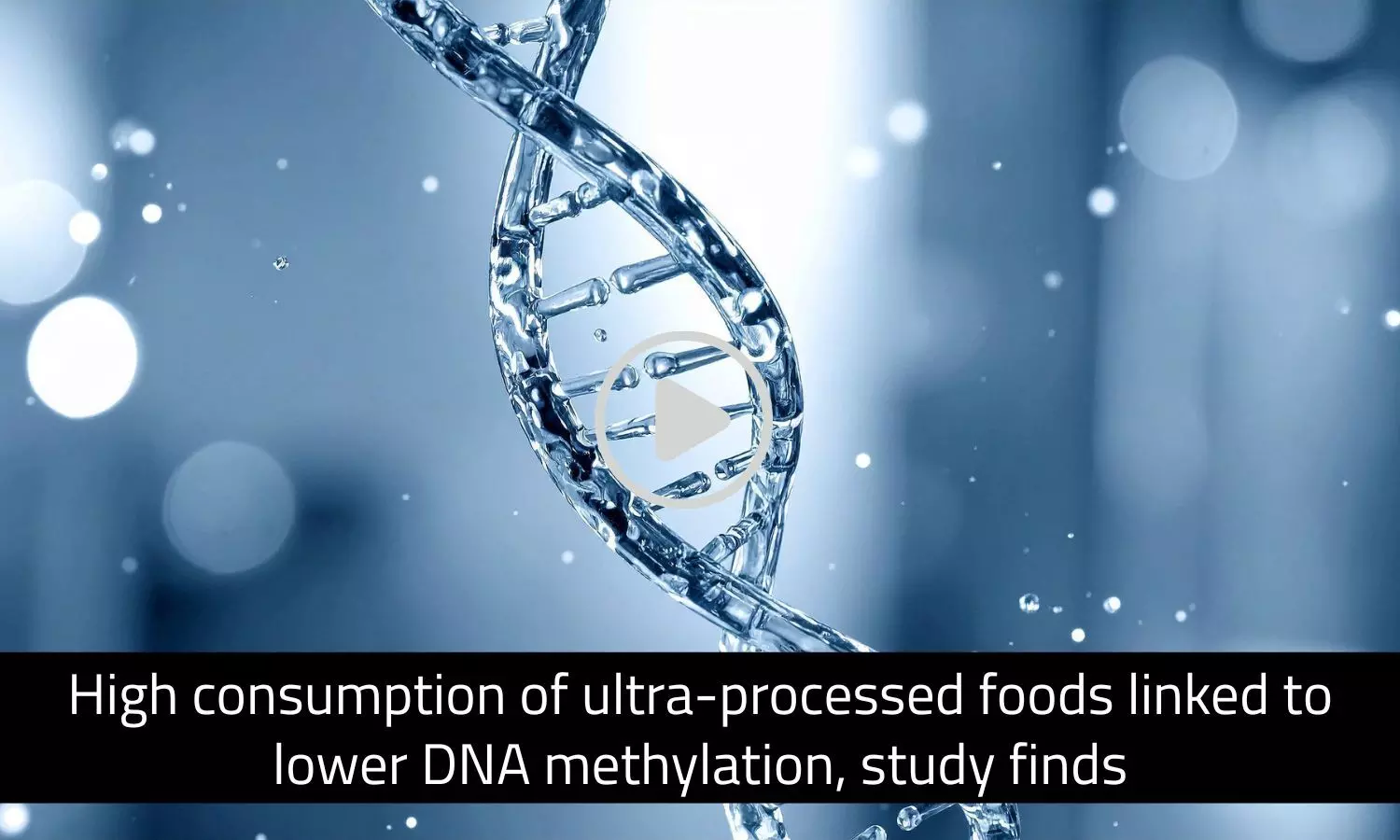Copyright medicaldialogues

Scientists have recently investigated how ultra-processed food (UPF) consumption affects epigenetic regulation, focusing on DNA methylation in peripheral blood leukocytes of women. Published in Nutrients, this pilot study found that women with higher UPF intake exhibited 80 differentially methylated regions (DMRs), mostly hypomethylated, suggesting that UPFs may influence gene expression linked to health outcomes, although causality remains unproven. Ultra-processed foods, defined by the NOVA system, include ready meals, packaged snacks, and sugary drinks rich in preservatives and additives. Their consumption has surged globally, paralleling rises in obesity, chronic diseases, and mental health issues. Beyond poor nutrition, UPFs may disrupt health via altered food structures and contaminants. Epigenetic mechanisms like DNA methylation, which regulate gene activity without altering DNA sequence, may mediate these effects. This exploratory cross-sectional study included 30 women aged 20–40 years, with BMIs 18.5–39.9 kg/m², excluding those with metabolic or chronic illnesses. Dietary intake was assessed by three-day food records, classifying foods by NOVA criteria to estimate UPF energy contribution. Participants were divided into tertiles of UPF consumption, with epigenetic analysis comparing the lowest and highest groups. Genome-wide DNA methylation profiling was conducted using next-generation sequencing following bisulfite conversion. Statistical analysis identified DMRs and correlations between methylation patterns and UPF intake. The low-UPF group consumed 14% of energy from UPFs, while the high-UPF group consumed 45%. Fifteen high-quality DNA samples were analyzed. The groups showed no differences in body composition. Surprisingly, the low-UPF group had higher LDL and non-HDL cholesterol levels. Genome-wide methylation profiling revealed 80 DMRs, predominantly hypomethylated in high-UPF consumers. Seven key DMRs with over fourfold differences involved genes linked to metabolism and cancer pathways. While limited by small sample size and cross-sectional design, this study demonstrates a potential epigenetic link between UPF intake and health, supporting future research into how diet influences disease risk through gene regulation changes. REFERENCE: Rodrigues, A.E., Fernandes, A.E., Carrasco, A.G.M., Pellenz, F.M., Lopes da Rosa, P.W., da Silva Hourneaux de Moura, A.M., Galvão de Oliveira Santin, F., Cercato, C., de Melo, M.E., Mancini, M.C. (2025). Nutrients 17(21), 3465. DOI: 10.3390/nu17213465, https://www.mdpi.com/2072-6643/17/21/3465



